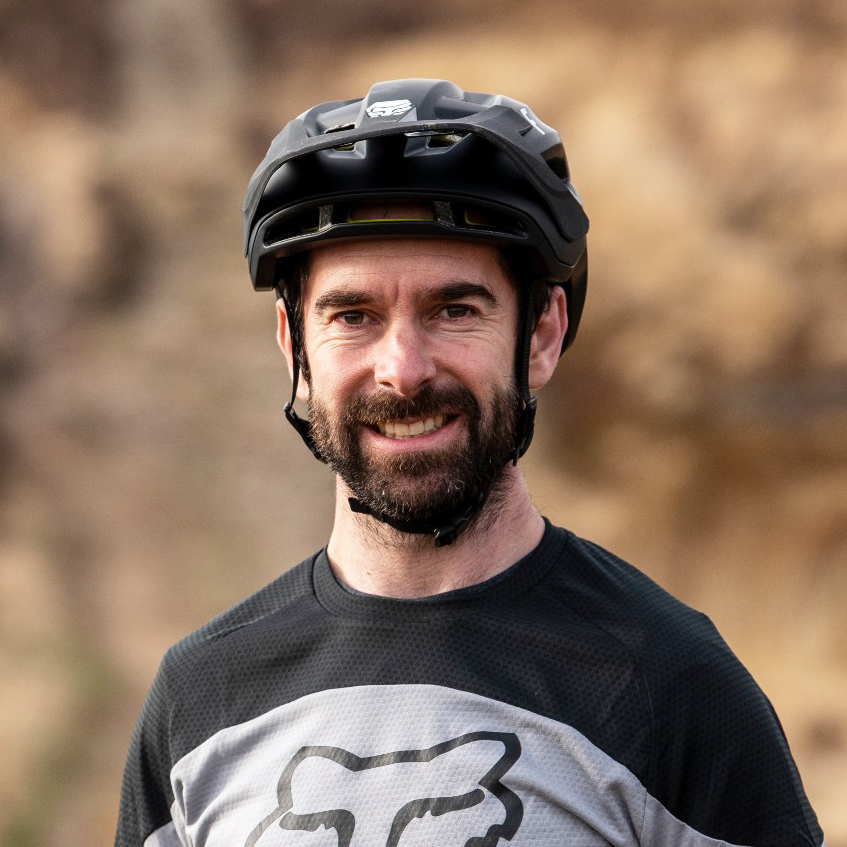The 2022 Kenevo SL from US brand Specialized offers riders the same big-travel capability as its highly successful Enduro model, but with some added assistance to make getting back up to the top of the hill that bit easier.
Up until now, creating a lighter-weight electric mountain bike that still retains the handling characteristics of a regular, non-assisted bike has, for the most part, been a dream rather than a reality.
Specialized’s Levo SL is one of the few that seems to have achieved this hard-to-reach balance, thanks to its lower overall weight and smaller-capacity battery.
But try to name a lightweight e-MTB with loads of travel and you’d have been hard pressed to think of one. That is, until the Kenevo SL was unveiled.
2022 Specialized S-Works Turbo Kenevo SL frame and suspension details
Taking inspiration from the Enduro, the Kenevo SL looks almost identical in many ways. The biggest difference here, though, is that Specialized has managed to discreetly squirrel away a motor and battery within the belly of the Kenevo SL, but more on that later.
The Kenevo SL frame is built from the brand’s FACT 11m carbon, just like the Enduro, and uses the same four-bar linkage with two additional links driving the rear shock, though understandably, the layout differs a little in order to make room for the motor and battery.
There’s 170mm of rear-wheel travel on tap and while, again, just like the Enduro, the rear shock pierces the seat tube, the Kenevo SL doesn’t use a trunnion-mounted unit.
Specialized has added some decent under-belly protection to help shield the motor and frame from rock strikes.
There’s more protection along the chainstay, too, but this is heavily shaped – something Specialized helped to pioneer – to help reduce noise and chainslap when the going gets rough.
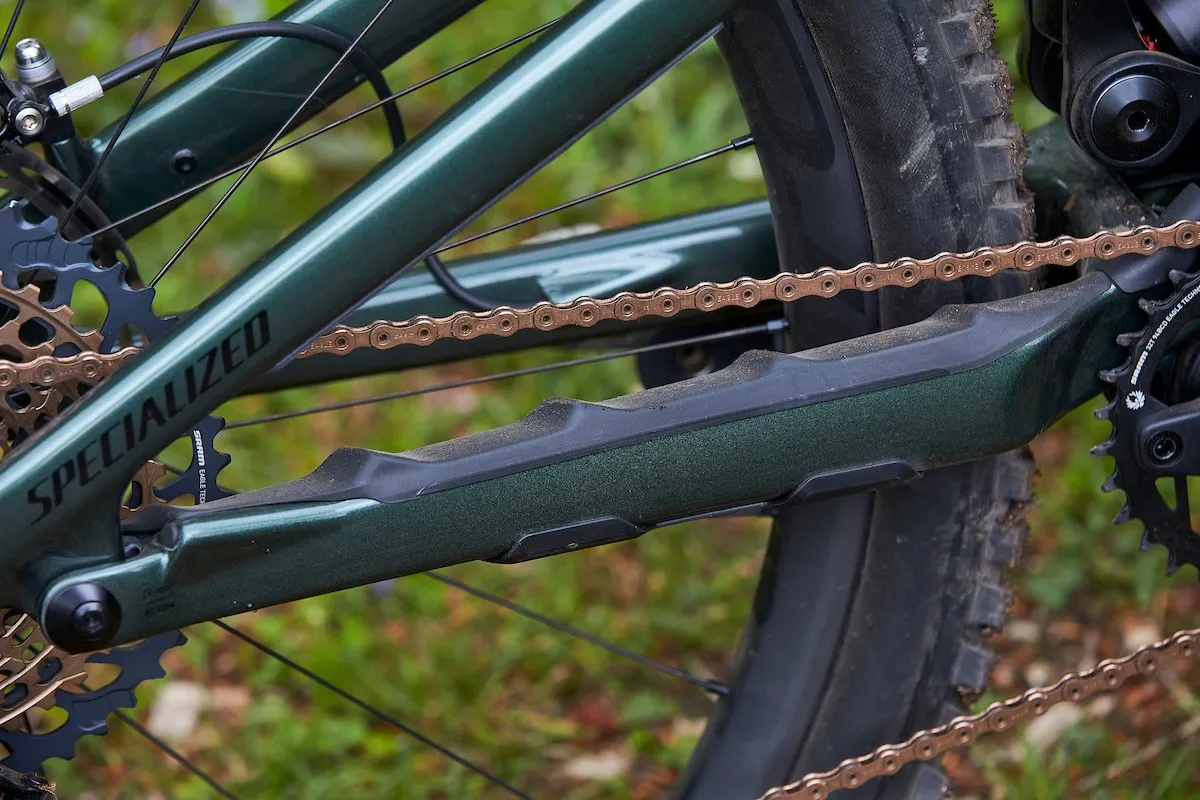
Cable routing is internal, though saying that, as the S-Works model uses SRAM’s Eagle AXS gearing and a RockShox Reverb AXS post, this particular model only has brake hoses to deal with.
The neat little rear fender should help to keep some mud and grime off the rear shock, too.
2022 Specialized S-Works Turbo Kenevo SL motor and battery
At the heart of the Kenevo SL sits the Turbo SL 1.1 motor, which delivers 35Nm of torque (less than half the torque of a regular e-MTB) and 240 watts, and is designed to double your efforts in the maximum Turbo mode.
Specialized has paired the lightweight motor with a 320Wh battery, which is integrated into the Kenevo SL’s down tube.
If you’re concerned about battery life, Specialized offers an additional 160Wh range extender that can fit neatly into the bike’s bottle cage and extend total ride time to a claimed seven hours.
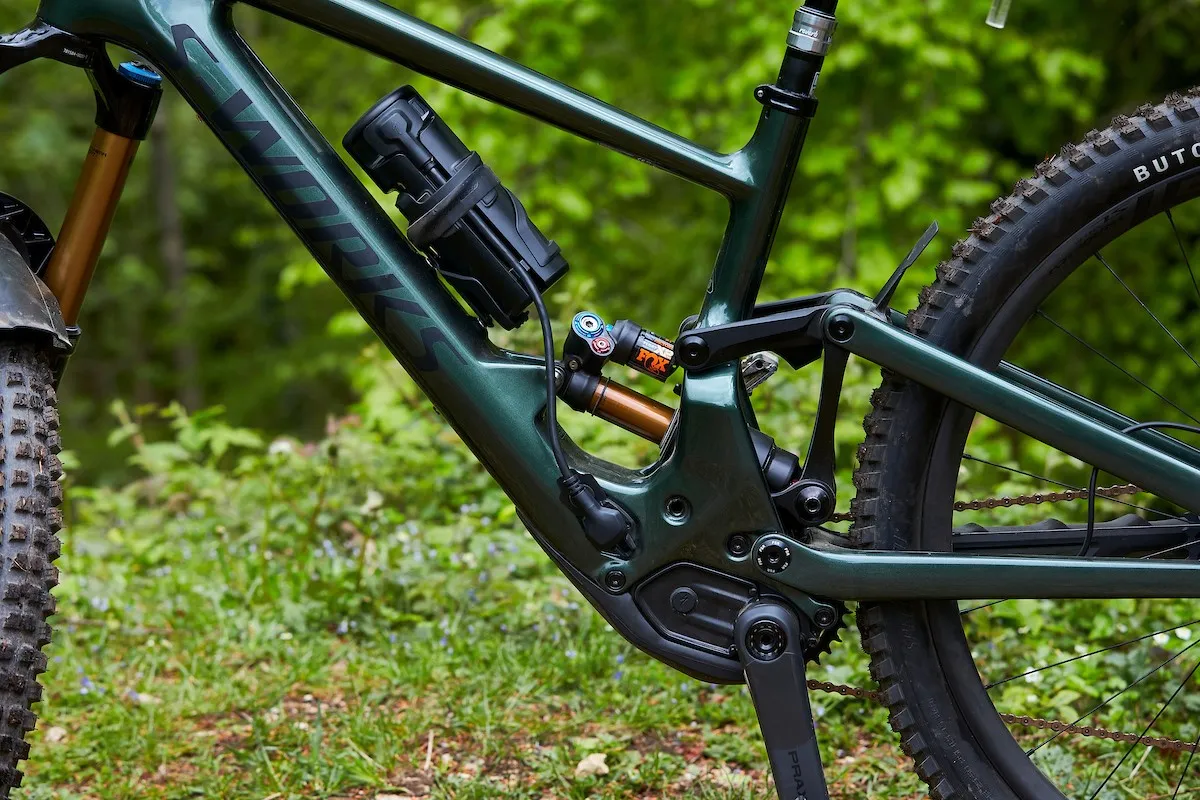
A small bar-mounted remote allows you to toggle through the three modes on offer (Eco, Trail and Turbo), as well as ‘Microtune’ the modes in 10 per cent increments. There’s also a Walk mode should the trail become unridable.
Situated on the top tube is the neatly integrated, customisable MasterMind TCU display, which provides on-the-fly info, including speed, battery life, time, distance, etc.
It’s easy to read and adjust, though only really when climbing or stationary.
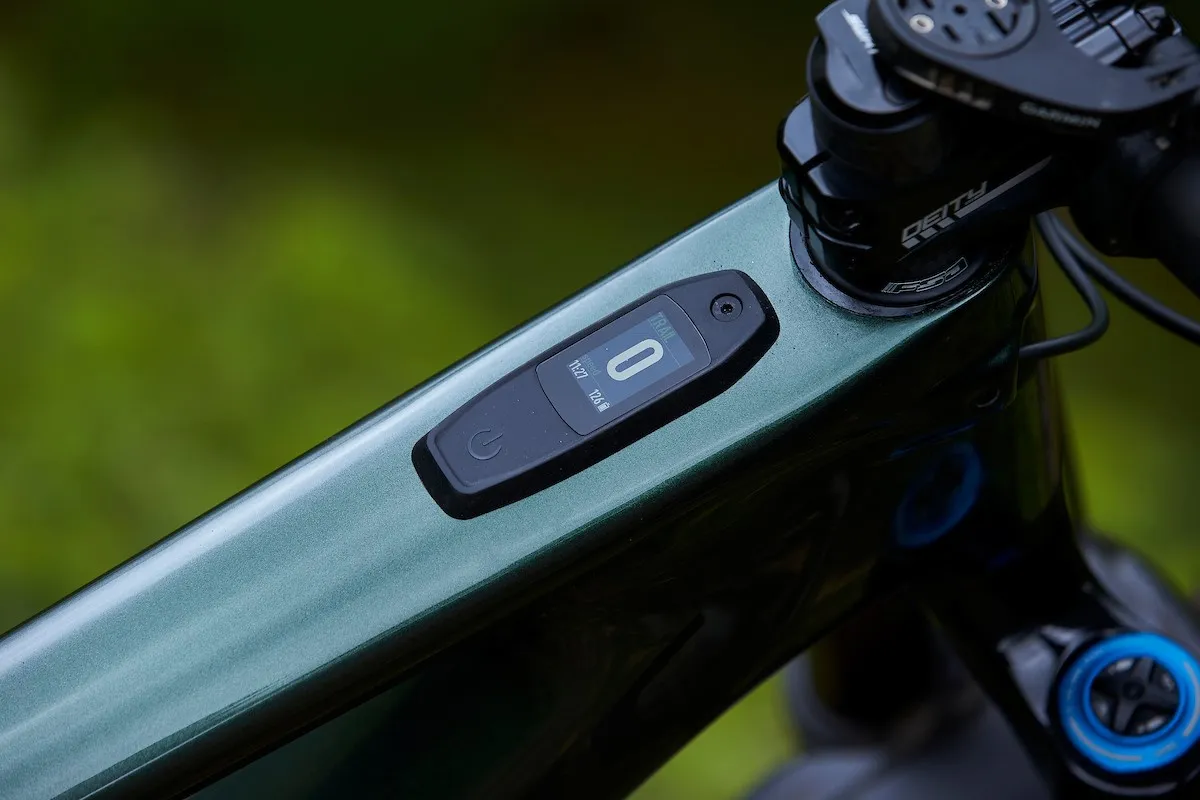
Of course, we can’t mention a Specialized e-bike without a nod to the brand’s impressive Mission Control app. Pairing your bike to the app is easy and, by doing so, you’re able to tune motor modes and monitor motor health and updates, along with logging ride data. The app is intuitive to use and gives some great customisation options.
2022 Specialized S-Works Turbo Kenevo SL geometry
Just like a number of other bikes in its range, the Kenevo SL uses Specialized’s S size range, which steps away from the more traditional method of matching rider to seat-tube height, and instead focuses more on the reach of the bike and your riding style.
Thanks to shorter seat tubes and longer-travel dropper posts, this is now possible. That means at 172cm (5ft 8in), while I like to ride the S3 frame size, I could fit on a more agile S2 or a longer, more stable S4 at a push.
Sadly, this wasn’t exactly the case with the Kenevo SL, simply because I couldn’t get the seatpost to sit far enough in the frame. That meant with the 150mm-travel post at full extension, the saddle sat roughly 5mm too high for me to be comfortable, which isn’t ideal.
But even when you do settle on a frame size, the angles aren’t exactly set in stone. That’s because the Kenevo SL has masses of geometry adjustment that comes courtesy of angled headset cups and flip chips located in the Horst pivot (chainstay pivot).
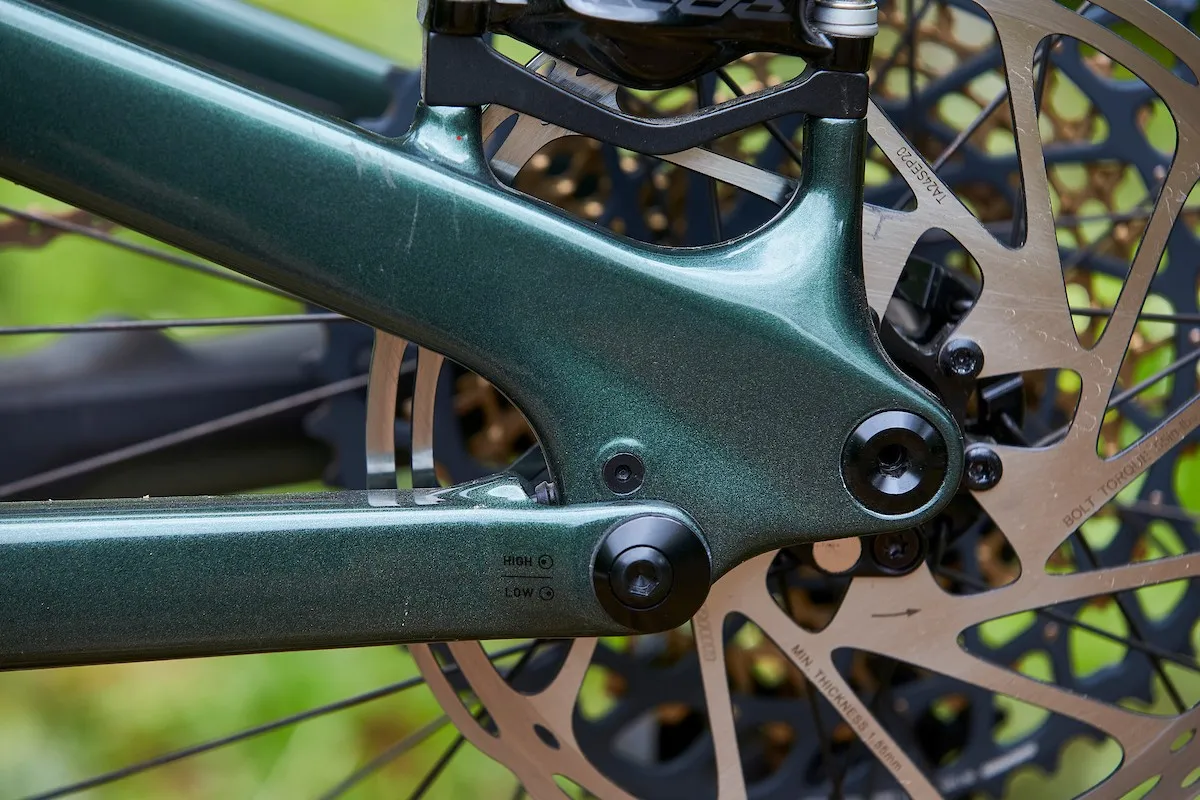
The head angle can be changed from a slack 64.5 degrees to a super-slack 62.5 degrees in one-degree increments, while flipping the chip in the Horst pivot will alter bottom-bracket height by around 6mm, reach and chainstay length by 5mm.
With my S3-sized test bike using the middle headset cup and set to the low position, it had a reach of 460mm, a bottom-bracket height of 348mm, a head angle of 63.3 degrees and an effective seat angle of just over 76 degrees.
Making the changes to the geometry is straightforward enough (you’ll want to do it at home in the workshop and not at the trail head, though) and Specialized offers a dedicated page that’ll give you the geometry of your frame once you input which headset or flip chip position you’re looking to change to. In all, there are six different combinations to try out.
Geometry (middle headset position/low bottom bracket setting)
| | S2 | S3 | S4 | S5 |
|---|---|---|---|---|
| Seat angle (degrees) | 76 | 76 | 76 | 76 |
| Head angle (degrees) | 63.5 | 63.5 | 63.5 | 63.5 |
| Chainstay (mm) | 447 | 447 | 447 | 447 |
| Seat tube (mm) | 400 | 420 | 440 | 465 |
| Top tube (mm) | 589 | 616 | 643 | 671 |
| Head tube (mm) | 105 | 115 | 125 | 135 |
| Fork offset (mm) | 46 | 46 | 46 | 46 |
| Fork TRAIL (mm) | 136 | 136 | 136 | 136 |
| Bottom bracket drop (mm) | 25 | 25 | 25 | 25 |
| Bottom bracket height (mm) | 350 | 350 | 350 | 350 |
| Wheelbase (mm) | 1,228 | 1,258 | 1,287 | 1,316 |
| Standover (mm) | 779 | 779 | 792 | 802 |
| Stack (mm) | 618 | 626 | 635 | 644 |
| Reach (mm) | 435 | 460 | 485 | 510 |
All geometry options for the S-Works Kenevo SL are available here.
2022 Specialized S-Works Turbo Kenevo SL specifications
Unsurprisingly, as the S-Works Kenevo SL costs as much as a deposit for a small house, it comes with some of the fanciest kit on the market bolted to it.
SRAM’s wireless XX1 Eagle AXS drivetrain (with a Praxis Carbon M30 crankset) and the brand's new Rocker Paddle, fitted to the right-hand controller, take care of the gearing.
To keep cabling to a minimum, there’s a RockShox Reverb AXS dropper post there for good measure too.
The S3 on test here sports a post with 150mm of drop but, unfortunately for me, it wouldn’t sit far enough into the frame to allow me to ride with the post at full extension (around 5mm more and I’d have been fine). The limited insertion depth certainly works against Specialized S frame sizing. More on that later, though.
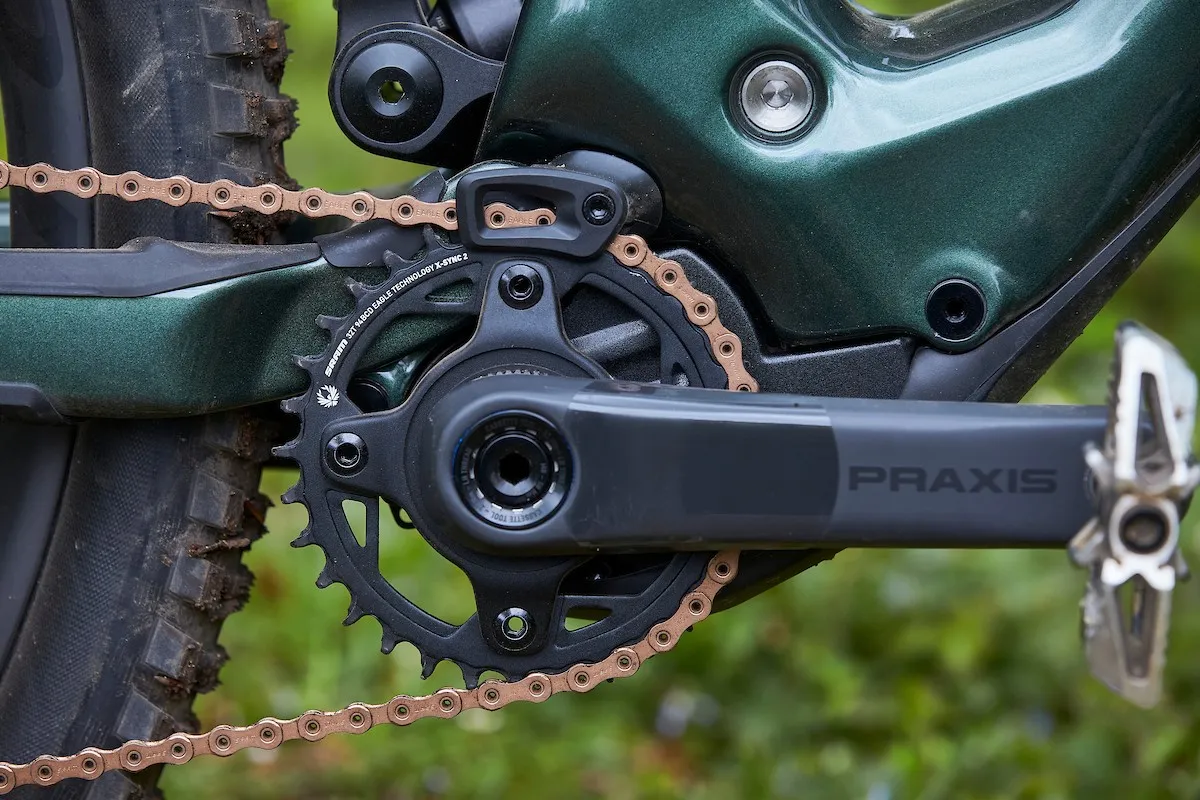
Specialized provides its Butcher tyres, both of which are 2.3in wide and made from the brand’s GRIPTON rubber, though the compound differs from front to back. Up front, there’s the grippier T9 compound, while at the rear the Kenevo SL features the faster-rolling T7 rubber.
Roval, Specialized’s sister company, provides the carbon Traverse SL bars, which come at 800mm as standard, though I cut these down to a more manageable 750mm. Roval also provides the Traverse SL wheelset.
In recent years, Specialized has been speccing Deity stems and grips, and it’s no different here with the S-Works Kenevo SL. While the chunky stem certainly looks the part, at 50mm in length, I’d argue it could be shorter, especially on the shorter frame sizes. The Knuckleduster grips are easy to get along with, though.
Stopping power comes courtesy of SRAM’s top-tier Code RSC brakes, which Specialized has paired with a massive 220mm rotor up front and a 200mm rotor at the rear. It’s great to see long-travel trail or enduro bikes come with big rotors, especially any that happen to have a motor and battery.
Just as you’d expect for this kind of cash, the Fox suspension featured here comes complete with gold Kashima-coated stanchions and loads of external adjustment. The 38 Factory fork features the impressive GRIP2 damper, which offers high- and low-speed compression and rebound adjustment.
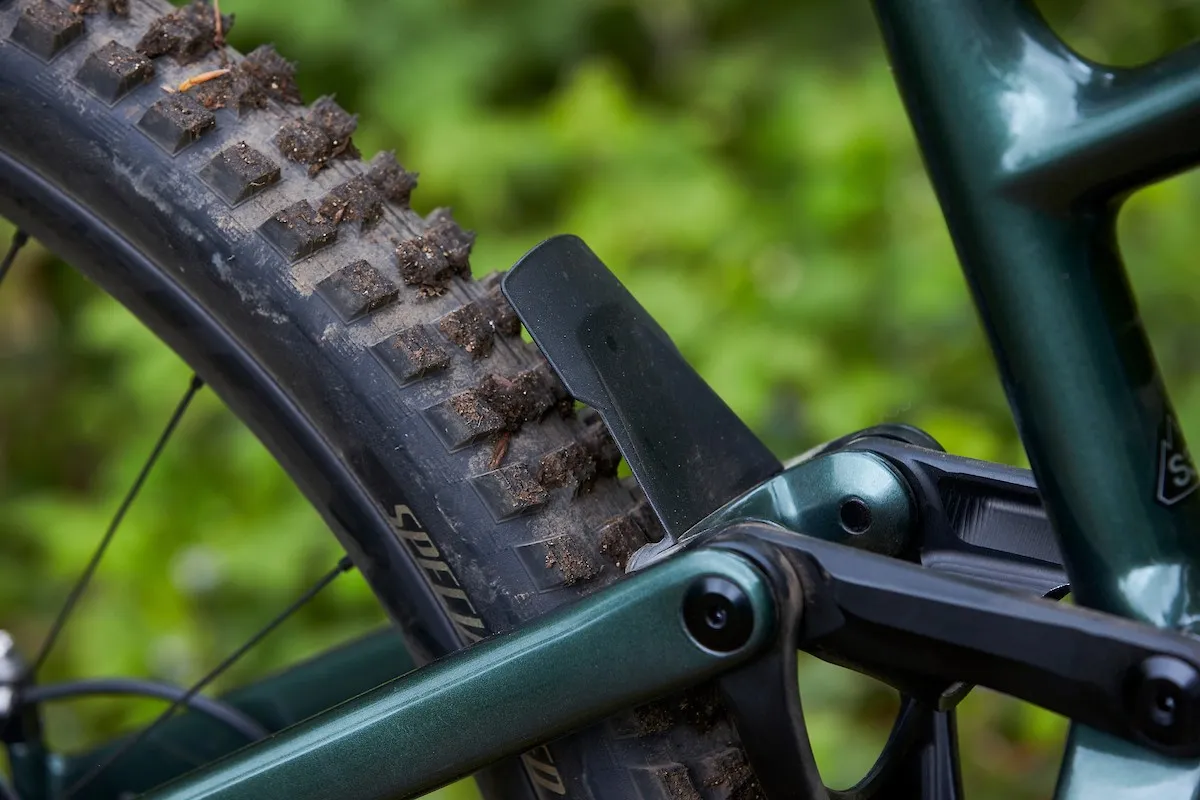
It’s a similar story for the X2 Factory shock at the rear, but this also features a two-position low-speed compression lever to help firm the back end of the bike up when you’re climbing.
Thanks to the integrated battery, there’s no SWAT internal down tube storage on the Kenevo SL, but Specialized has still included the SWAT Conceal tool, which sits inside the fork steerer tube and comes in handy more than you might think.
All in, the S3 S-Works Kenevo SL seen here weighs 19.05kg (without pedals). My old size S3 Enduro Comp, which was tested back in 2020, weighed 15.86kg (also without pedals).
2022 Specialized S-Works Turbo Kenevo SL ride impressions
I’ve been riding the S-Works Kenevo SL in a variety of locations and on a lot of different types of trails. These have included everything from steep, root-riddled natural tech tracks, through to faster, mellower tracks littered with berms and jumps of various sizes.
2022 Specialized S-Works Turbo Kenevo SL setup
Setting the bike up took a little bit of trial and error, with both the suspension settings and the geometry positions. In the end, I settled on using the middle headset cup/position with the low bottom-bracket setting.
When it came to dialling in the suspension, once I was comfortable with spring pressures (102psi in the fork and 162psi in the shock), I found myself winding a little more low-speed compression damping onto the shock in order to keep the bike balanced.
I ran both compression adjusters on the Fox 38 fork fully open, along with the high-speed rebound damping, too, and just one click (from full open) of low-speed rebound damping.
At the rear, I set up the bike with close 32 per cent sag. While I kept the high-speed compression and rebound damping fully open, I settled on 14 clicks (from closed) of low-speed rebound damping and 11 clicks of low-speed compression on the X2 shock.
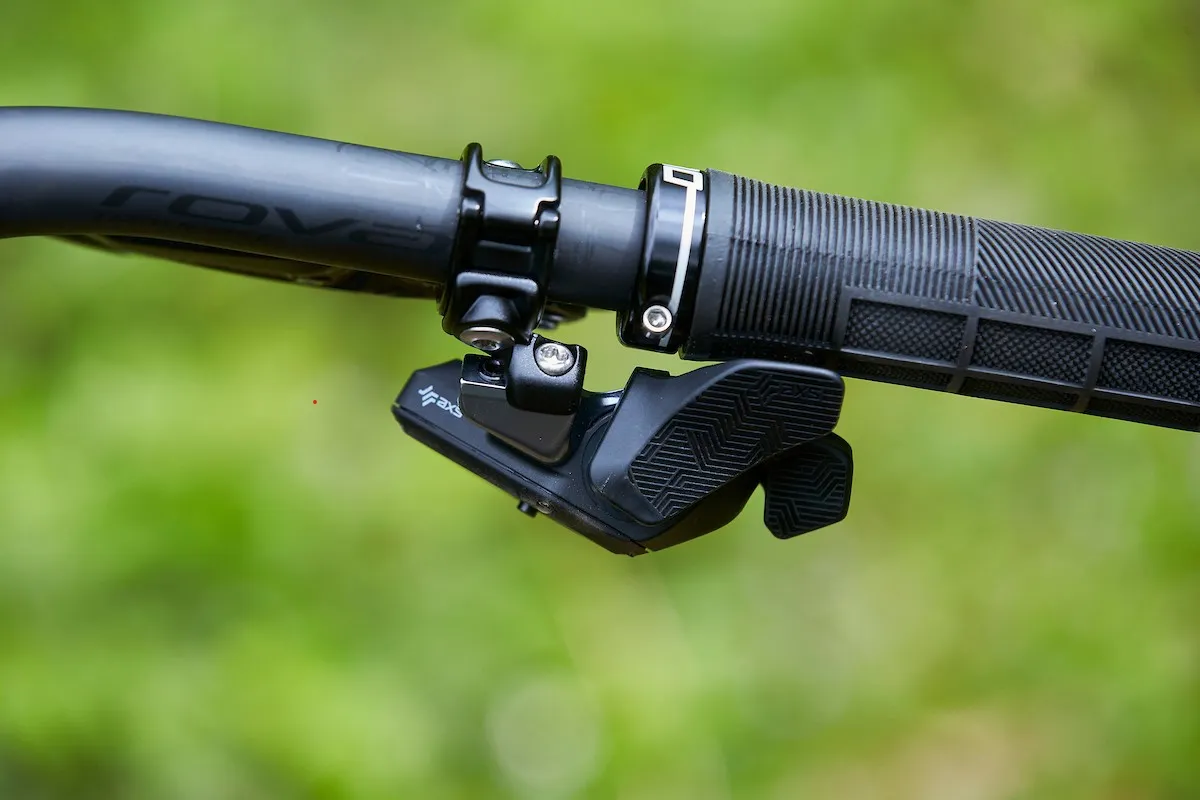
The other thing of note was moving both AXS controllers away from the grips and a little further inboard on the bar. If they were too close, I found the knuckles of my thumbs getting rubbed by them, but too far away and the stretch to use them was just a little too much.
2022 Specialized S-Works Turbo Kenevo SL climbing performance
As I’ve mentioned previously, the amount I was able to insert the seatpost meant that I was unable to ride with it fully extended, which was quite frustrating. Yes, the RockShox Reverb AXS does make small adjustments to the post height really quick and easy, but it’s something that shouldn’t really need to be a consideration.
I think switching to a lower stack post (such as the OneUp dropper) would negate this problem easily enough, though it’s not something I’d be eager to do after dropping £12,500 on a new bike. It’d also add a cable and could, by some, be considered a downgrade from the Reverb AXS dropper.
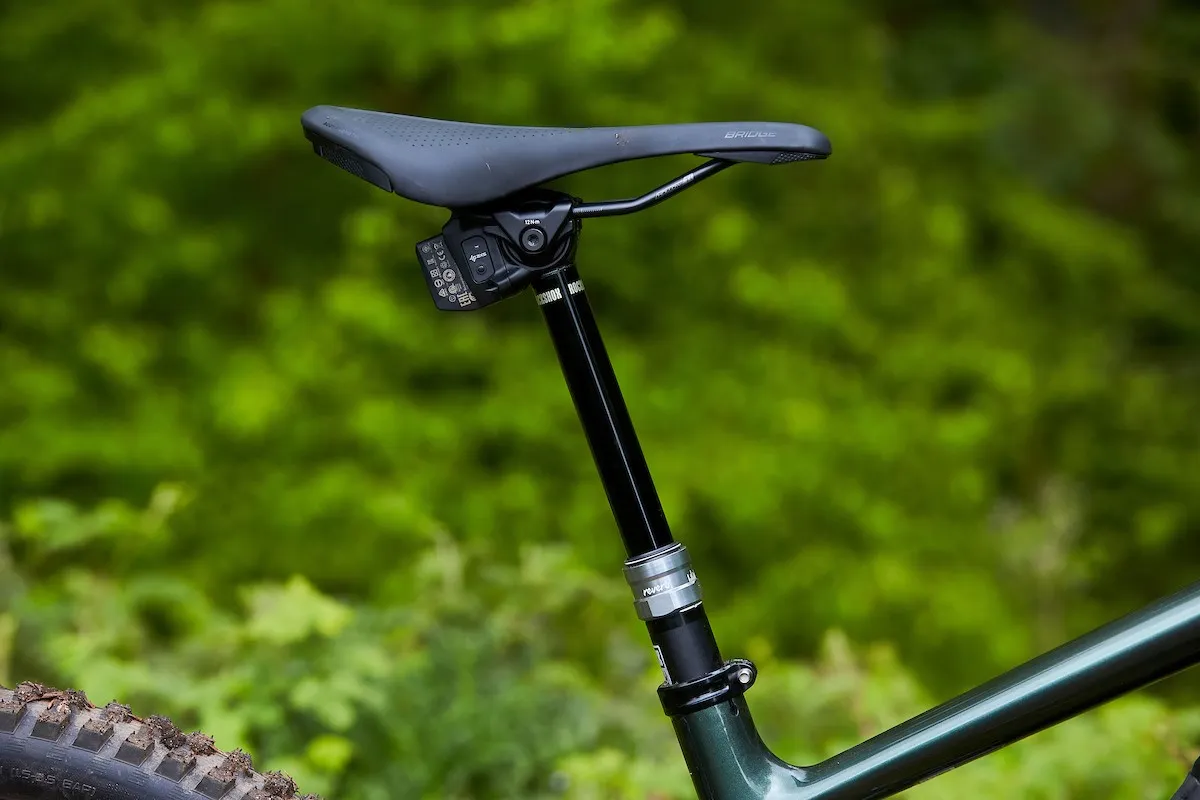
That issue aside, the rest of the geometry and fit figures really suited my 172cm (5ft 8in) height. I felt almost perfectly placed between the wheels from the get-go, which left me feeling comfortable and confident whether I was seated or stood up out of the saddle.
On the climbs, the long front centre, lengthy back end (in the low setting) and reasonably steep effective seat angle help to create a really composed climber, and even when things got particularly steep, I never struggled with the front wheel lifting.
At no point did I feel the need to flick the low-speed compression lever on the shock, because the back end remains pretty calm while seated and spinning a gear.
Less power, just as much fun
When it comes to the assistance on offer, I’d say that it’s subtle rather than neck-wrenching, and delivered in a very smooth, predictable way.
As you’d expect, there’s some noise from the motor, which is what really gives the Kenevo SL away when you’re pedalling along the trails, despite its looks. I’d say the noise is on a par with most other e-MTBs I’ve tried lately (including the Nukeproof Megawatt and Whyte E-180). I got accustomed to it pretty quickly and soon was able to ignore it.
In the Turbo mode, it’ll pretty much double your power, and feels similar but not identitcal to riding a full-blown e-MTB in Trail mode.
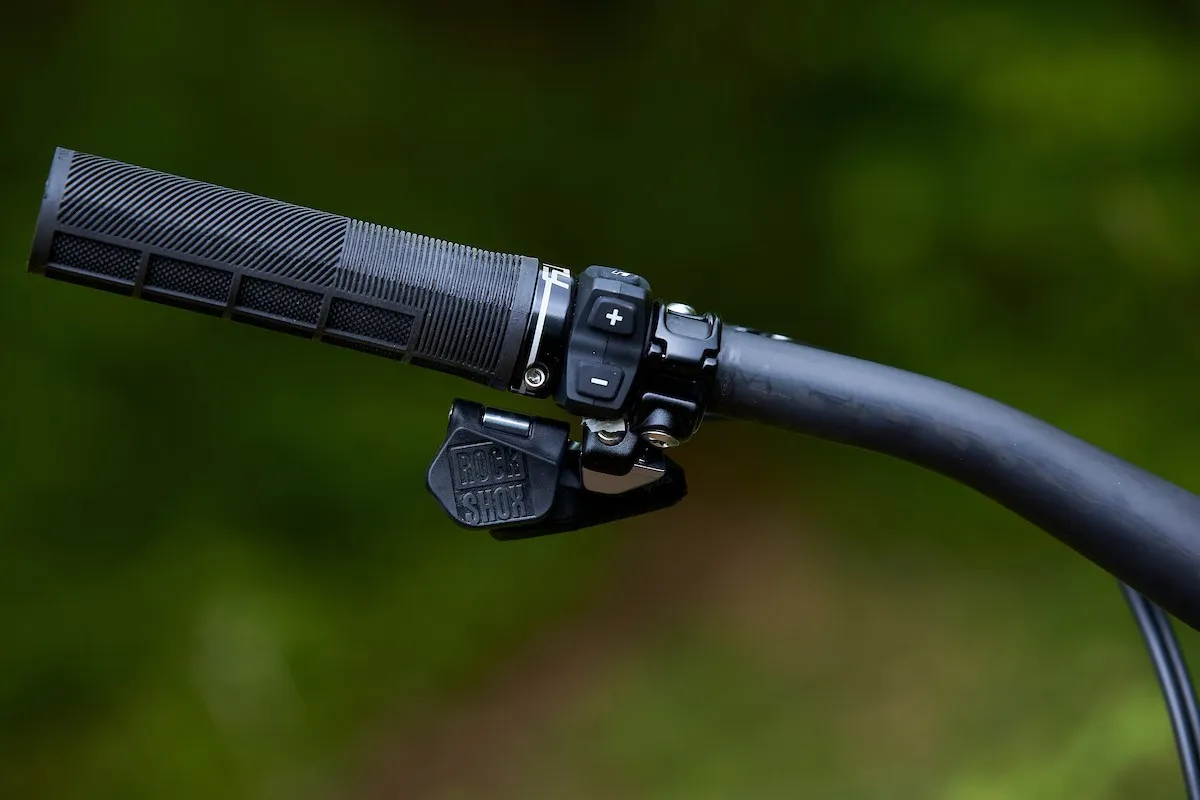
That means while you’ll be able to tackle more severe climbs than you might on your regular bike and not be breathing as hard at the summit, the Kenevo SL lacks the grunt to keep up with full-on e-MTBs, both in terms of outright pace and with the types of technical climbs that might be possible.
But for me, that doesn’t detract from the appeal here, as this is a slightly different ride experience when compared to a full-fat e-MTB.
That’s mainly down to how the Kenevo SL handles and the lower weight, meaning it never feels like an unwieldy monster when pointed uphill or when riding back down.
Grinding my AXS
My only comment regarding the spec and how the bike performs uphill is to do with the wireless AXS gearing. On the one hand, as a fan and early adopter of AXS, I can really appreciate the feel of the shifter and the precise nature of the gear changes.
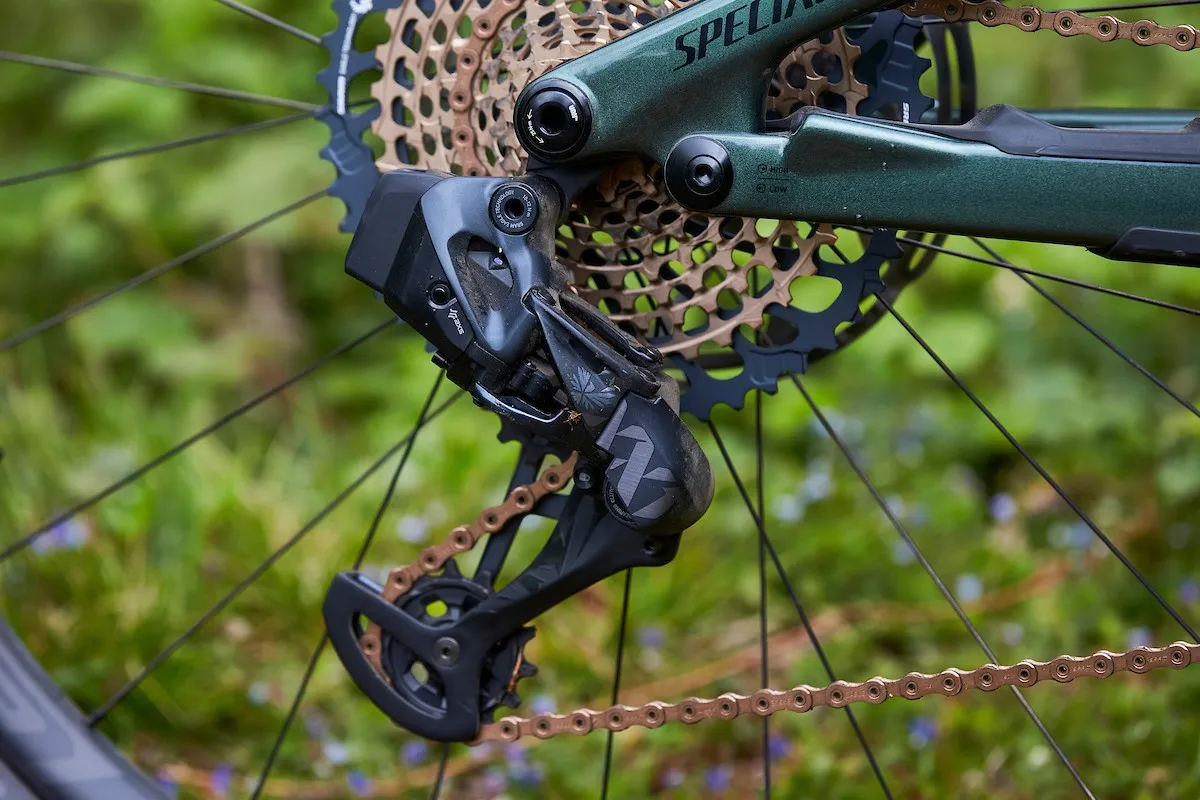
But under power, without the ability to really feel that change happening as you depress the shifter paddle on a cable-operated setup, I found myself wincing from time to time as I changed rapidly from one gear to the next.
Don’t get me wrong, that can happen on other e-MTBs and with cable operated transmissions, but it definitely took me some time to re-calibrate and get my shifts finessed enough to avoid any hefty crunches.
Specialized S-Works Turbo Kenevo SL descending performance
Even with those extra few kilos, there’s no getting away from just how similar the Kenevo SL feels to the Enduro. Okay, there’s more weight to throw around, but there’s enough of a difference between it and a full-blown e-MTB that its handling feels more akin to its non-powered counterpart.
And, just like the Enduro, the Kenevo SL feels like a big, burly bike that’s really ready to rumble. But this is no runaway train that’s hard to keep control of when fatigue kicks in. Far from it.
Agile but stable
Even with the extra weight that comes courtesy of the motor and battery, we were instantly impressed by just how agile and easy to manipulate the SL felt. Yes, it’s got some extra weight over a non-assisted bike, but that weight is nice and low in the frame and really helps to keep the bike stuck to the trail through the turns.
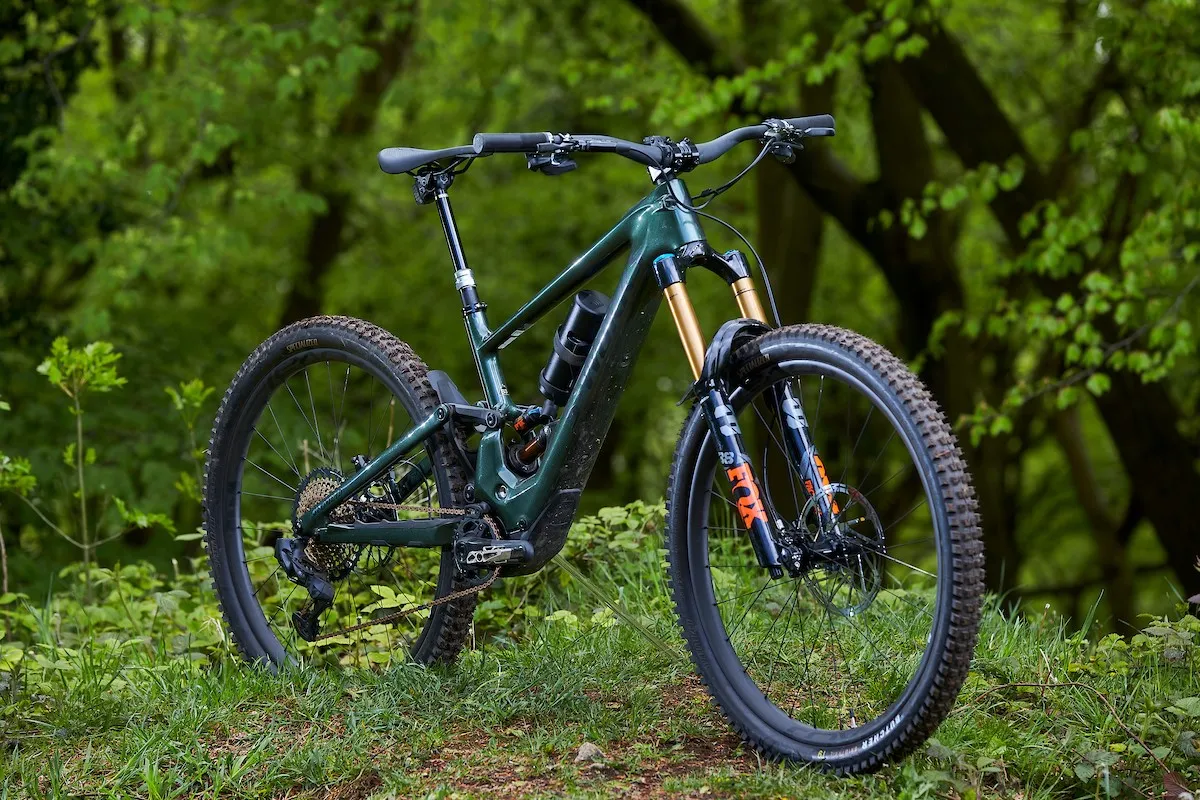
At the end of my battery-draining test ride, where I managed a reasonable 38km with 1,600m of climbing in the Kenevo SL’s Trail mode, I didn’t end up feeling like a passenger on the bike, holding on for dear life as I attempted to navigate the trail – a feeling I’ve certainly experienced on full-blown e-MTBs when fatigue has kicked in.
Instead, I felt fresher and eager for more (which is, of course, totally possible if you swap your water bottle for the range extender battery that’s also available).
Sussed-out suspension
In terms of suspension performance, once I’d found both my preferred geometry and fork and shock settings, the Kenevo SL felt really well-balanced (I initially felt I was over the back of the bike too much with the bike in the higher bottom bracket/shorter chainstay length and struggled to weight the front wheel through flat turns).
Making the change to the lower/longer setting really helped to remedy this.
The low centre of mass (and extra mass compared to the Enduro), coupled with the supple action delivered by the Fox fork and shock, makes the Keveno SL incredibly confident through the corners.
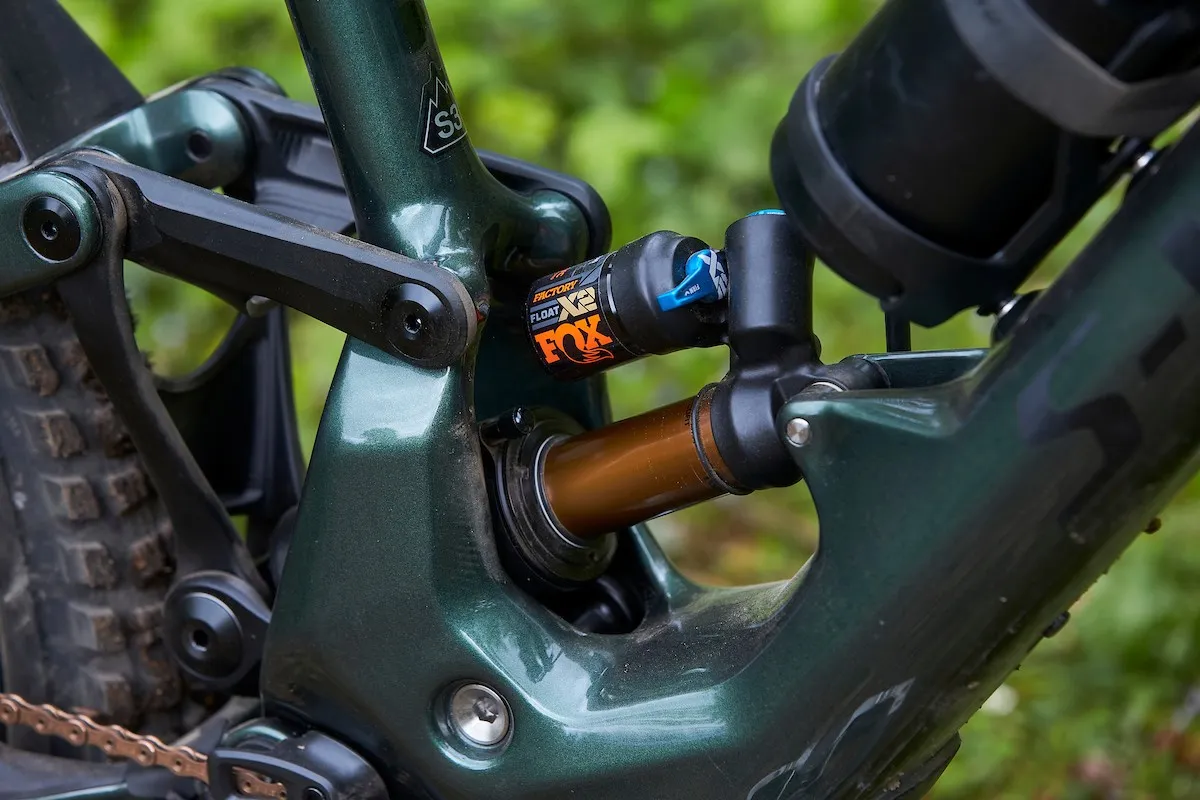
There were times when I managed to miss lines and make turns tighter than I’d have liked, expecting to wash out entirely when I hit the corner or simply exit with next to no speed. But that well-positioned weight and impressively sensitive suspension certainly helped me get away with more than I first thought possible, which really helps boost flow, especially on trails that I was riding blind.
A shorter stem on the S3-size frame would be a welcome addition, though. Specialized supplied its Enduro with the same stem originally, and switching to a 40mm unit made me feel more comfortable on the bike.
Through repeated hits and on rougher tracks, the Kenevo SL manages to retain an impressive level of composure. The 38 fork’s supple stroke and well-supported mid-stroke is well-matched to the X2 rear shock. That’s not to say both dampers are perfect, though, as at 68kg with riding kit on, I found myself running both the rebound and compression damping on the fork almost fully open.
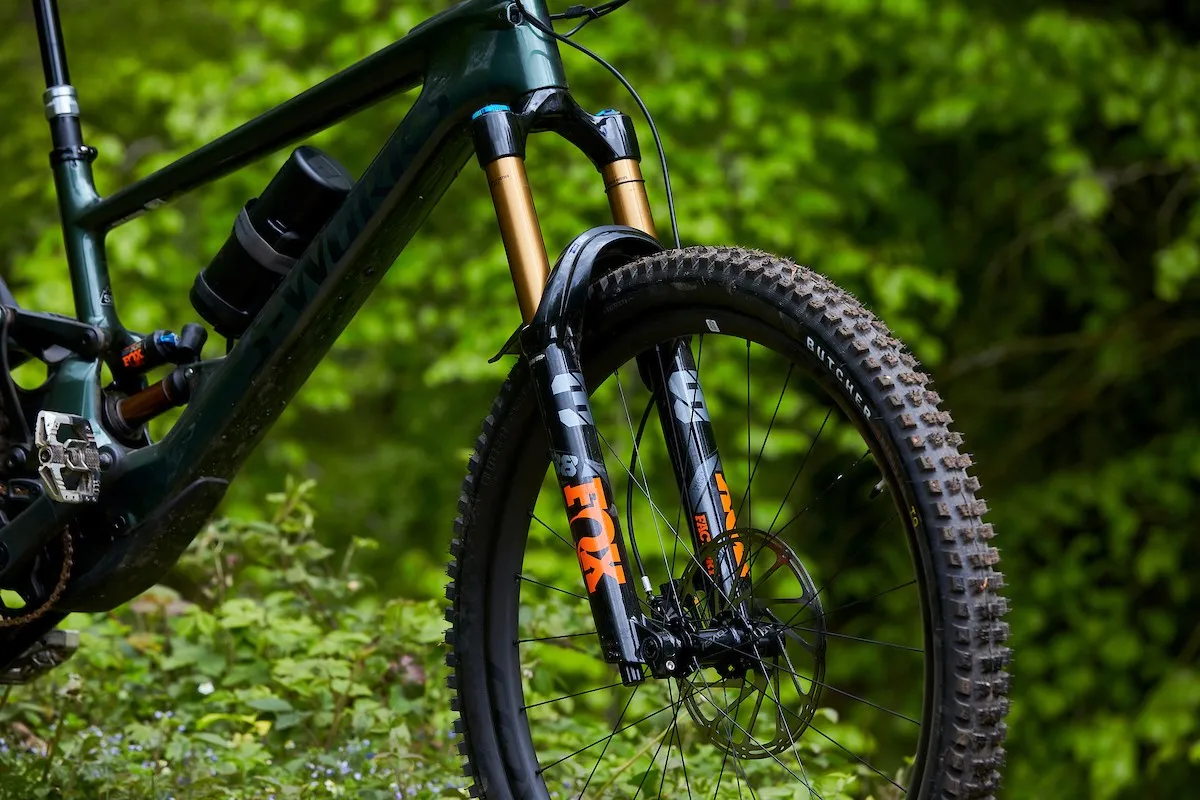
Other testers on our team who are heavier than me find this less of an issue, but for me, it does limit external-tuning potential.
Fortunately, I was able to get both the fork and shock behaving just as I’d like (I like to have just enough rebound damping to keep things feeling controlled but still running nice and fast), though lighter riders may really struggle.
Little line adjustments
When the bumps do come thick and fast, the Kenevo SL feels nicely controlled and totally planted. But, unlike regular e-MTBs, the weight saving on offer thanks to the smaller motor and battery means that when you do want to adjust your line or pick up the front end of the bike to clear an obstacle, it doesn’t take as much effort as muscle.
That’s a real plus for me, and what helps to make the Keveno SL stand out above its competitors.
Like the motor, the bike isn’t as stealthy as some, and I noticed a rattle when things got really rowdy that I struggled to properly pin down. It’s by no means something that detracts from its performance, but taking time to properly soundproof the bike is worthwhile if you like a quiet bike.
You will struggle to keep up if all your mates ride full-fat e-MTBs, but if that isn’t an issue for you and you prefer that more connected feel to the trail and the nimble nature of a non-assisted bike, then the Kenevo SL is a ridiculously impressive machine.
It’s a different experience to a full-powered, heavier e-MTB – it’s more subtle when it comes to the levels of assistance on offer, which might not win everyone over, but if you were ever on the fence about electric bikes, this could easily be the one to win you over. Especially when pointed downhill.
Exceed the motor's speed limit and the Kenevo SL doesn’t feel like a drag to ride. It retains the manoeuvrability of a regular bike (though requires a little more effort to make those moves happen) and feels more than happy tackling mellower trails where full-powered e-MTBs can feel dull and hard work.
In Trail mode, I managed to eke out 38km of riding with 1,600m of climbing. (without the range extender plugged in). Riding the Kenevo SL is still a decent workout, but just like any other e-MTB, it allows you to ride more of the best bits, which is really important if your time is limited. The ride experience is closer to that of a non-assisted enduro bike, which, more than anything, is what won me over.
Specialized S-Works Turbo Kenevo SL bottom line
The S-Works Kenevo SL is a seriously expensive bit of kit (Specialized now offers a cheaper Comp model for £7,000, which, although still very expensive, will appeal to more folk) and to a degree, somewhat of a different proposition to a regular e-MTB.
In terms of ride experience, it’s more of a halfway-house between a regular enduro bike and a full-powered e-MTB, which should definitely appeal to purists who have been reluctant to try e-MTBs up until now.
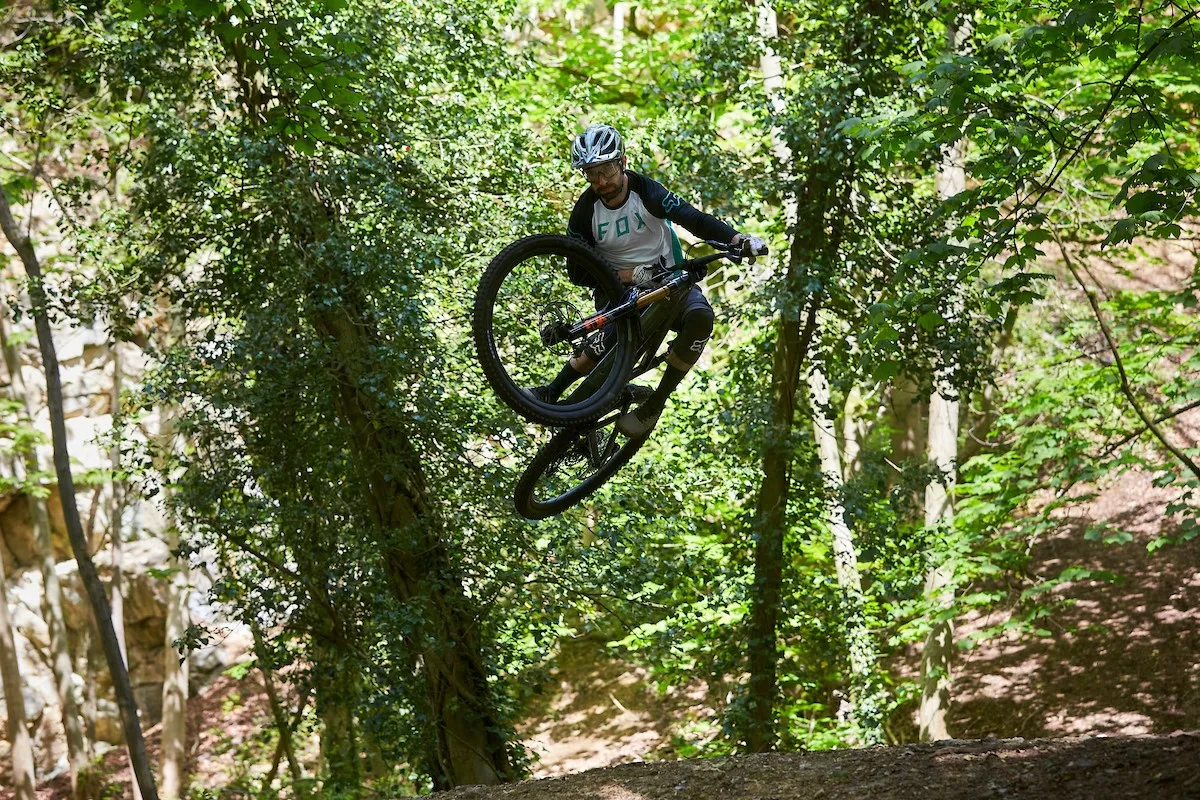
What does that mean on the trail? Well, if you’re riding with a group of mates who are all aboard regular e-MTBs, you’ll need to work seriously hard to keep up (and chances are the Kenevo SL’s battery will die before anyone else’s if it’s a long ride).
If that’s not an issue for you (or you’re really keen on working that bit harder to keep you with your e-MTB mates), though, you’ll be rewarded with top-class handling characteristics, well-composed and balanced suspension, brilliant (adjustable) geometry and a subtle but very welcome helping hand on the climbs back up to the top of the hill.
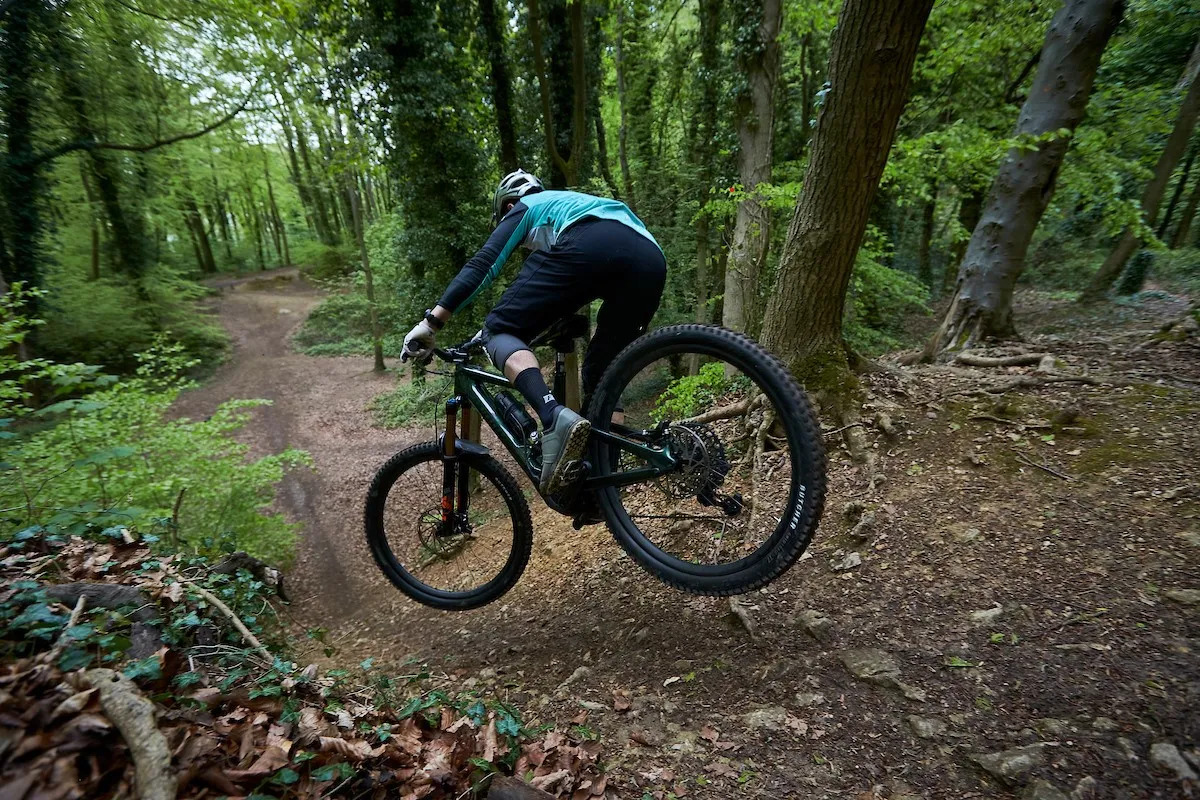
If that sounds appealing, then go to a shop and check the bike sizing out. While the geometry is impressive, the seat post insertion depth could throw a spanner in the works for some.
If it doesn’t, then the Kenevo SL is a truly incredible bit of kit and one hell of a blast to ride.
Product
| Brand | specialized |
| Price | 24200.00 AUD,14500.00 EUR,12500.00 GBP,15000.00 USD |
| Weight | 19.0500, KILOGRAM (S3) - size S3, without pedals |
Features
| Fork | Fox Float Factory 38 GRIP2, 170mm travel |
| br_stem | Deity 35, 50mm |
| br_chain | SRAM XX1 |
| br_frame | FACT 11m carbon, 170mm (6.7in) of travel |
| br_motor | Specialized SL 1.1, with a Specialized SL-320 320Wh battery |
| Tyres | Specialized Butcher T9 GRID Trail 29x2.3in (fr)/Specialized Butcher T7 GRID Trail 29x2.3in (r) |
| br_brakes | SRAM Code RSC (220mm/200mm rotors) |
| br_cranks | Praxis Carbon M30 |
| br_saddle | Specialized Bridge |
| br_wheels | Roval Traverse SL 29 |
| br_shifter | SRAM XX1 Ealge AXS |
| br_cassette | SRAM XG-1299 10-52t |
| br_seatpost | RockShox Reverb AXS, 150mm |
| br_gripsTape | Deity Knuckleduster |
| br_handlebar | Roval Traverse SL carbon, 800mm |
| br_rearShock | Fox Float Factory X2 |
| br_availableSizes | S2, S3, S4, S5 |
| br_rearDerailleur | SRAM XX1 Eagle AXS |
